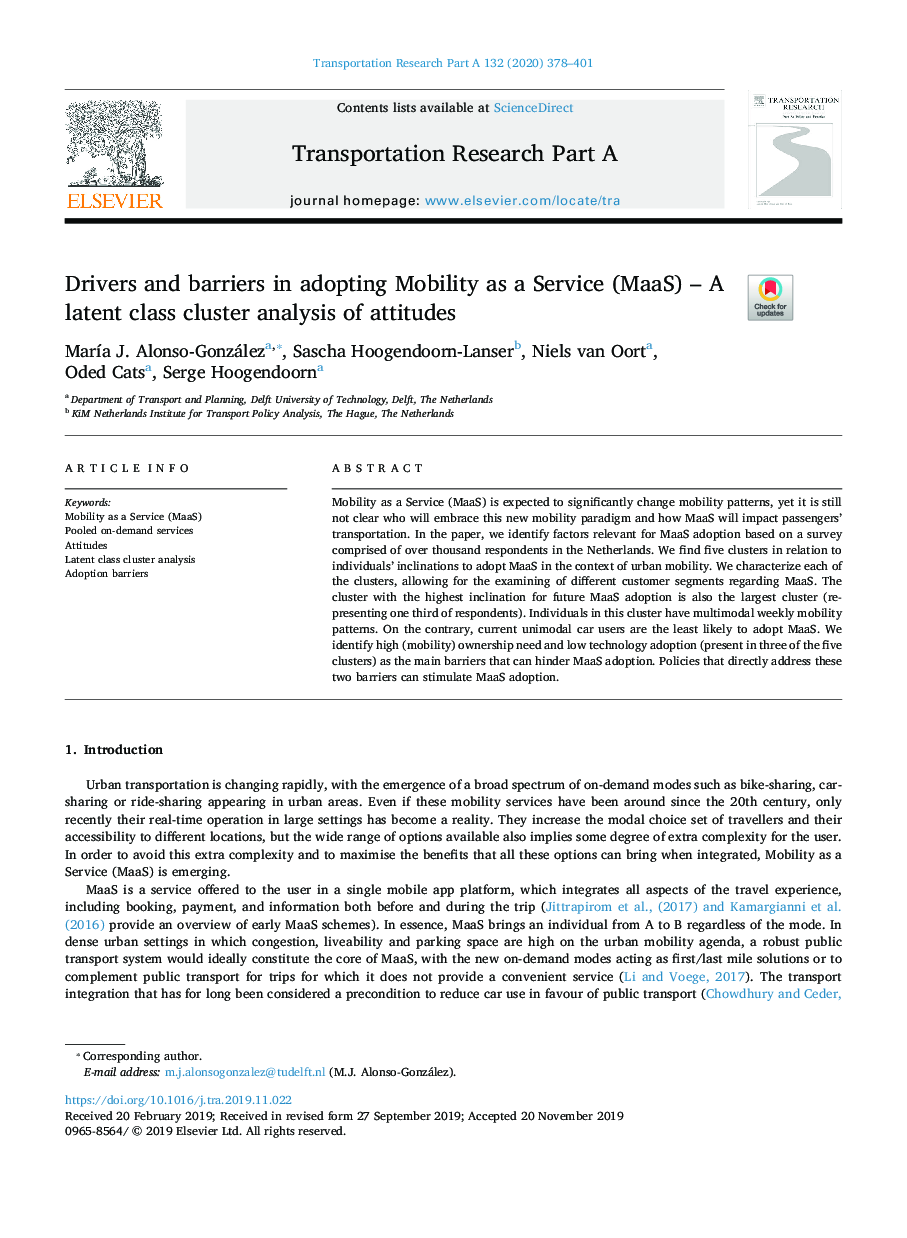| Article ID | Journal | Published Year | Pages | File Type |
|---|---|---|---|---|
| 13423081 | Transportation Research Part A: Policy and Practice | 2020 | 24 Pages |
Abstract
Mobility as a Service (MaaS) is expected to significantly change mobility patterns, yet it is still not clear who will embrace this new mobility paradigm and how MaaS will impact passengers' transportation. In the paper, we identify factors relevant for MaaS adoption based on a survey comprised of over thousand respondents in the Netherlands. We find five clusters in relation to individuals' inclinations to adopt MaaS in the context of urban mobility. We characterize each of the clusters, allowing for the examining of different customer segments regarding MaaS. The cluster with the highest inclination for future MaaS adoption is also the largest cluster (representing one third of respondents). Individuals in this cluster have multimodal weekly mobility patterns. On the contrary, current unimodal car users are the least likely to adopt MaaS. We identify high (mobility) ownership need and low technology adoption (present in three of the five clusters) as the main barriers that can hinder MaaS adoption. Policies that directly address these two barriers can stimulate MaaS adoption.
Related Topics
Physical Sciences and Engineering
Engineering
Civil and Structural Engineering
Authors
MarÃa J. Alonso-González, Sascha Hoogendoorn-Lanser, Niels van Oort, Oded Cats, Serge Hoogendoorn,
